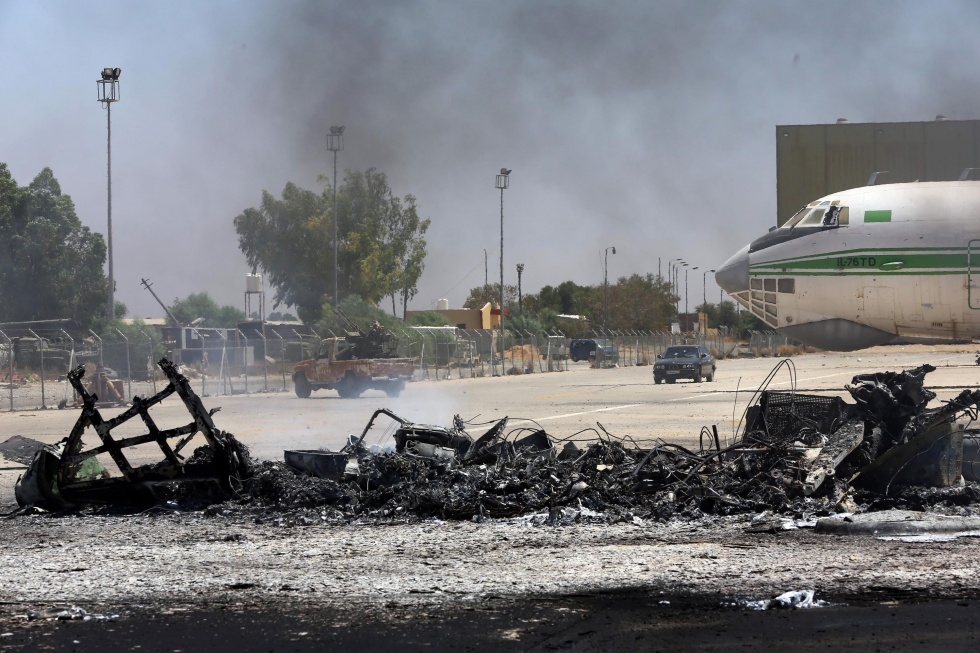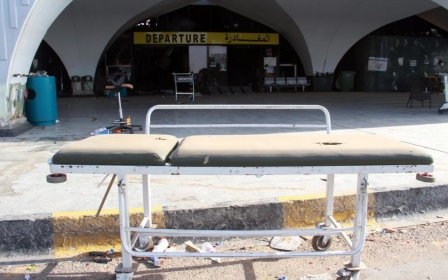Libya's interim government resigns

Libya's interim government, led by prime minister Abdullah al-Thani, announced late Thursday it had submitted its resignation to the elected parliament, days after a rival Islamist administration was created.
The interim government, operating in the east of the country to avoid the Islamists militias which have a strong presence in Tripoli, said it "presented its resignation to the elected parliament", which is based in Tobruk, 600 kilometres east of the capital, also for security reasons.
The so-called Islamist or Misrata militias include both Islamist and revolutionary groups opposed to renegade general Haftar's Zintan militias and the Tobruk-based parliament known as the House of Representatives.
The announcement came three days after Libya's General National Congress, officially replaced by the parliament elected in June, on Monday named pro-Islamist figure Omar al-Hassi to form a "salvation government".
The Islamist-dominated GNC convened in Tripoli following an appeal by Islamist and revolutionary groups which contest the legitimacy of the parliament based in Tobruk.
"The GNC dismissed Abdullah al-Thani as head of government and gave Omar al-Hassi a week to form a salvation government," GNC spokesman Omar Ahmidan told journalists in Tripoli on Monday.
Islamists called for the GNC to reconvene after they accused parliament of complicity in air raids last week on Islamists battling to capture Tripoli international airport from the nationalist Zintan militia.
The Islamists claimed to have seized the airport and television pictures on Monday showed them apparently celebrating their capture of the facility.
In its resignation statement the Thani government said it hoped parliament, which it described as "the only legitimate authority in the country", would form a new government "representing all Libyan people... and capable of re-establishing security and building a lawful state".
That will also be the wish of the international community which has become increasingly concerned at the chaotic situation in Libya.
The outgoing administration denounced the move to create an alternative Islamist government.
"It's an act of rebellion against the legitimacy of parliament which is recognised by the international community," it said.
New MEE newsletter: Jerusalem Dispatch
Sign up to get the latest insights and analysis on Israel-Palestine, alongside Turkey Unpacked and other MEE newsletters
Middle East Eye delivers independent and unrivalled coverage and analysis of the Middle East, North Africa and beyond. To learn more about republishing this content and the associated fees, please fill out this form. More about MEE can be found here.




